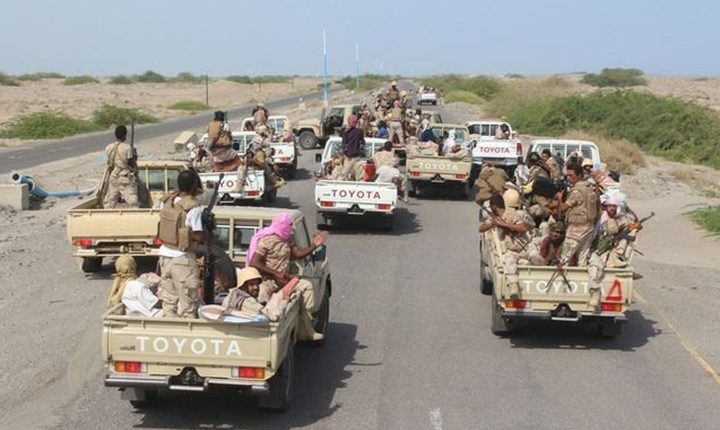SHABAWH, Jan. 12 (YPA) – The newly appointed “governor of Shabwah”, Mohammed Abdullah bin Adeu under the regime of exiled former president Hadi is reportedly facing several challenges, the most important of which is the security situation and chaos in the province.
Observers unanimously agree that the chaos in Shabwah is caused mainly by the security policies pursued by the forces of the so-called “al-Shabwa Elite forces”, backed by the UAE occupation.
The UAE-backed militias continue, “to thwart the active movements of the new governor, Mohammed Abdullah bin Adeu, to arrange the conditions in the oil-rich province.
Shabwah now is under the control of “elite” forces, whose instructions and actual orders came from the leadership of the United Arab Emirates, who have played a prominent role in their formation, training and arming.
These troops are deployed in strategic areas, where oil fields and other vital sites, including Belhaf facility, which has been transformed by the UAE forces into a military base. These heavily erode any authority Hadi’s appointed governor could have in reality.
In the past few days, the city of Shabwah has witnessed fierce battles between the “elite” forces, supported by Emirati air cover, and the residents of the village of al-Hajer in the town of Merkha, west of Shabwah city.
The fighting erupted on 5 January, after the Abu Dhabi-backed force raided the house of a resident in the village on the pretext of belonging to al-Qaeda, without taking into account the reaction of the locals to this violation of the sanctity of their homes.
According to informed sources, the residents in the area, many of whom are of a tribal nature, gathered and took up their guns to in order to stop the raids on the houses. The standoff has since evolved into bloody confrontations between the two sides.
Shabwah, which has a strategic location in Yemen, has become the objective of ambitions for different regional forces that aim to control its natural resources, mostly oil wealth, as well as its ports. Shabwa has a direct coastline to the Gulf of Aden and through it to the Arabian Sea.
Shabwah is experiencing a strong multifaceted conflict, according to a political activist who spoke on conditions of anonymity.
“At a time when local forces ran from the city of Aden are trying their best, through using the “Shabwanian elite”, to tighten their grip on the city of Shabwah, a new revolutionary Party, led by Ahmed bin Musaid, a social figure of great weight, has recently emerged to change the equation of power of influence, by exploiting the state of popular discontent against the policies of the Saudi-led coalition, and its management of this city’s file,” he said.
Ahmed bin Musaid is the leader of the National Council of Shabwah, which declared its independence from Yemen in November 2018, and called for the immediate withdrawal of all Hadi-loyalist and foreign occupation forces from the area.
However, the activist source interviewed by media recently indicated that Musaid may have left Shabwah following Hadi’s appointment of Mohammed ben Adeo as the “governor of Shabwah”.
The activist added that the Saudi-led invasion coalition is involved in the attempt to remove Musaid from power, because they see the “hijacking of the local authority command position” as a threat to their ambitions.
Abdul Karim al-Saadi, head of a movement called the South Yemen Civil Forces Rally, stressed that what is happening in Shabwa is an extension of what is going on in the cities of Aden and Abyan (both in the south of Yemen), Hadramawt (east) and other southern provinces.
In all of these provinces, separatist or tribal organizations that have no ties to the traditional political parties in Yemen have been rising up over the past months, often engaging in violent confrontations with Saudi and Emirati occupation forces and their militants.


